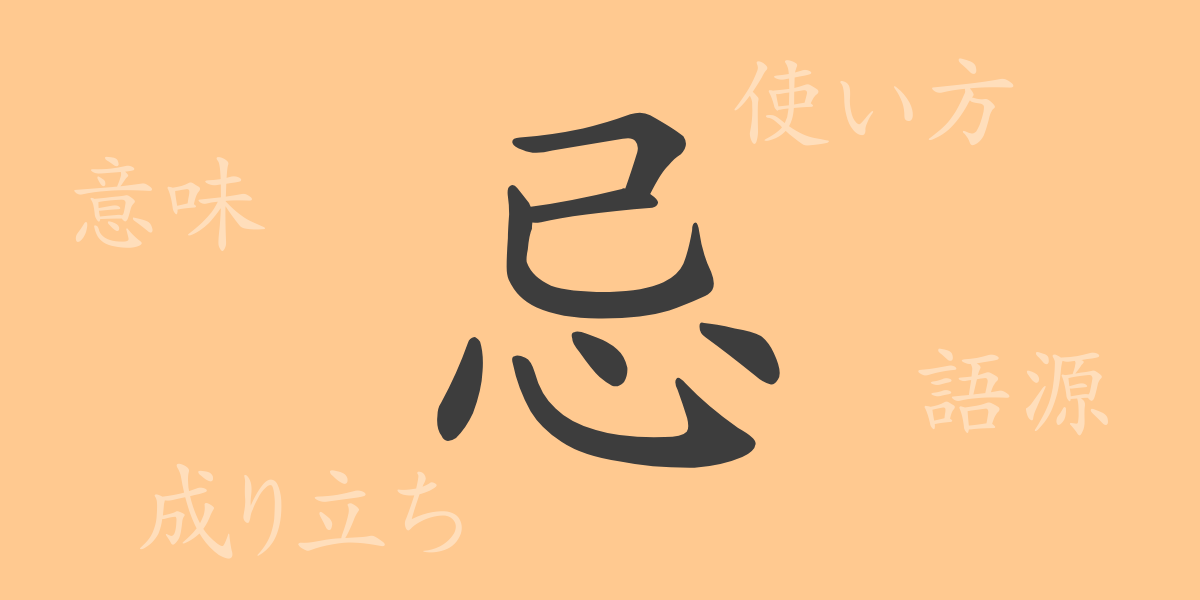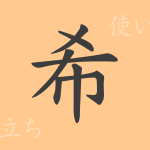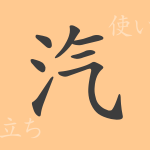The meaning behind a single Kanji character is deeply rooted in its shape and history. The Kanji “忌” (いみ/imi) is used in everyday life, but behind it lies a rich culture and history. In this article, we will delve into the origins of “忌” (いみ/imi), its contemporary usage, and related idioms and phrases. Let’s step into the world of “忌” (いみ/imi), a commonly used Kanji character in Japan.
The Origins of 忌 (いみ/imi)
Exploring the origins of the Kanji “忌” (いみ/imi) is crucial to understanding its meaning. “忌” (いみ/imi) is a character that originated in ancient China, originally referring to rituals or days intended to avoid “pollution” or “bad things”. It is a phono-semantic compound character, combining the radical for heart “心” (しん/shin) and the phonetic “己” (き/ki). From this combination, meanings such as “things to be avoided by the heart” or “things to be kept in mind” emerged.
The Meaning and Usage of 忌 (いみ/imi)
“忌” (いみ/imi) carries meanings like “to abhor” or “to avoid”. It is also used for days of mourning for the deceased, days to avoid certain activities, or matters considered taboo. In Japan, expressions such as “忌日” (きにち/kinichi – day of mourning) are used to speak indirectly about death, and there is a custom of avoiding unlucky days referred to as “忌日” (きにち/kinichi). The character’s usage is diverse, including instances where direct expressions are to be avoided.
Pronunciation, Stroke Count, and Radical of 忌 (いみ/imi)
The Kanji “忌” (いみ/imi) has unique readings and structure.
- Readings: The Onyomi (Chinese reading) is “キ” (き/ki), while the Kunyomi (Japanese reading) includes “い.む” (いむ/imu) and “い.み” (いみ/imi).
- Stroke Count: It consists of 7 strokes in total.
- Radical: The radical is 心部 (しんぶ/shinbu), which classifies it among Kanji related to emotions and the mind.
Idioms, Phrases, and Proverbs Using 忌 (いみ/imi) and Their Meanings
Idioms and phrases that include “忌” (いみ/imi) reflect the meaning of the Kanji profoundly. For instance, “忌避” (きひ/kihi) means to shun something as avoidable, while “忌明け” (いみあけ/imiake) refers to the end of mourning and returning to normal life. A proverb such as “忌中に祝言あり” (きちゅうにしゅくげんあり/kichuu ni shukugen ari) is used to denote a happy event occurring during a period of misfortune. These expressions highlight the depth and intricacy of the Japanese language.
Conclusion on 忌 (いみ/imi)
Through this article, we have gained a deeper understanding of the multifaceted nature and usage of the Kanji “忌” (いみ/imi). From its origins to its contemporary usage, and the idioms and phrases it features in, “忌” (いみ/imi) is a Kanji that has been cherished within Japanese language and culture. For learners of Japanese, knowing such background is incredibly beneficial for deepening their understanding of the language.

























